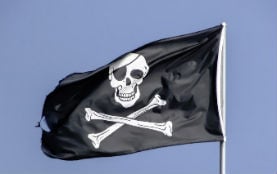Internet provider Bright House Networks has countersued several major record labels, alleging that they sent false and deceptive piracy notices to its subscribers. This week, the company asked the court for permission to add the RIAA and its anti-piracy partner MarkMonitor to the suit, as they are central to the wrongful conduct.

Last year, a group of major music companies sued Internet provider Bright House Networks, a subsidiary of Charter Communications.
The lawsuit claimed that the ISPs failed to terminate repeat infringers. By keeping pirates as customers it violated the DMCA, the music companies alleged.
Such claims are not new. The same music companies have sued several ISPs in the past and booked a major victory when a jury ordered Cox to pay a billion dollars in damages for turning a blind eye to piracy on its network.
Charter is determined to avoid ending up in a similar position. In March, it denied the copyright infringement allegations in court while striking back with some accusations against the record labels. According to Charter, the companies abused the DMCA by sending “false” and “deceptive” piracy notices.
These counterclaims were filed against the same music companies that sued Bright House. However, in a new filing this week, the ISP informs the Florida Federal Court that it would like to add two new defendants to the suit.
RIAA and MarkMonitor Played a Central Role
Bright House explains that the music industry group RIAA and its anti-piracy partner MarkMonitor are also to blame. The RIAA was responsible for sending the piracy notices that were sent by and based on evidence provided by MarkMonitor.
“The RIAA and MarkMonitor are central to Plaintiffs’ wrongful conduct,” Bright House informs the court. “Bright House received copyright infringement notices containing material misrepresentations from the RIAA, purporting to assert the rights of Plaintiffs but sent by MarkMonitor.”
Normally, it wouldn’t be a problem for Bright House to add new defendants to its counterclaim. However, in this case, the officially scheduled deadline to do so has passed. This is why the company is requesting explicit permission to add the new parties.
This delayed request is justified, the ISP argues, because the originally scheduled deadline passed before it had the chance to add the new parties.
A copy of the proposed amended complaint, filed yesterday, shows that Bright House accuses the RIAA and MarkMonitor of committing the same offenses as the record labels that were sued.
Violating the DMCA
First, Bright House accuses all companies of violating the DMCA by knowingly sending inaccurate piracy notices. This includes sending notices for musical works that they allegedly don’t own or have the rights to. In addition, the notices themselves are sometimes based on unconfirmed evidence.
“Upon information and belief, Plaintiffs, the RIAA, and MarkMonitor, routinely fail to confirm that the files identified by MarkMonitor as allegedly infringing are in fact copies of the works asserted before notices are sent to ISPs, like Bright House,” the complaint reads.
Among other things, the ISP cites an academic study from Jennifer Urban and colleagues, which found that MarkMonitor occasionally makes mistakes. While that study was focused on web takedowns, not P2P infringements, the conclusions are not in favor of the RIAA’s anti-piracy partner.
For example, MarkMonitor was found to send takedown notices to Google which flagged sites that had been dead for over a year. In addition, not all identified URLs matched with the allegedly pirated material.
“The Urban Study also discussed specific instances in which notices sent by MarkMonitor were ‘clear mismatches’ between the allegedly infringed work and the online content that was allegedly infringing,” the complaint adds.
Deceptive and Unfair Trade Practices
The second claim against the companies accuses them of violating Florida’s Deceptive and Unfair Trade Practices Act.
Specifically, Bright House accuses them of “knowingly or recklessly sending, and causing to be sent, false, deceptive, and misleading copyright infringement notices” for works they didn’t own or have the rights to.
Before the court reviews any of these claims against the RIAA and MarkMonitor, it first has to decide whether the counterclaim can be amended to include the new defendants. If it’s accepted, the RIAA and MarkMonitor will get the opportunity to have their say as well.
—
A copy of the proposed amended counterclaims to the amended complaint is available here (pdf)
Source: TorrentFreak